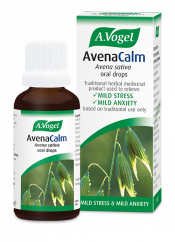Early morning anxiety
5am, Wide awake
Sleep escaped
Feeling buzzy, wired
Anxious, tired
Mind filled with fear
Thoughts lacking in cheer
Why me? Why you?
What to do and not do?
Early morning anxiety seems to be a sadly common phenomenon, given the questions I receive, personal experience of family and friends and the amount of internet searches with this title.
It is not easy to explain why it happens since there seem to be many contributing factors but listed below are some possible reasons and tips which may help:
Generally when people wake with early morning panic, they have already been experiencing stress and anxiety throughout the day.
On waking, the body tenses and jumps into ‘fight or flight’ at the memory and thought of another stress filled day ahead. Thus a bout of negative thinking ensues before the day has even begun and a repeating cycle of early morning dread is created.
Added to this, the latter part of the night and early part of the morning generally sees an increase in blood pressure and cortisol levels (the fight or flight hormone which goes into overdrive when we are stressed) as the body prepares to start another day. This can give rise to the ‘buzzy’ feeling that can course through the body.
If we are already stressed then we are likely to be experiencing poor and often interrupted sleep which exacerbates this issue.
We tend to sleep in 90 minute cycles and if these are interrupted (by alarm clocks, noises, eating too late etc) it can increase the feelings of stress on waking.
We may a have a genetic predisposition to stress and anxiety which can leave us prone to suffering in this way.
Diet is an important factor because if we skip meals, leave long gaps between meals, eat a large meal too late, consume too much sugar, caffeine, alcohol or processed foods these can all put a strain on our digestive system (which can disrupt sleep) and cause our blood sugar to rise and fall dramatically adding to the pressure on the nervous system.
During the night the body goes a long time without food and water. When we wake our blood sugar and hydration levels are therefore naturally low. And guess what? Both these issues alone can create low mood, nervous tension and strange body sensations.
Tips to help
Avoid dwelling on the fear of the early morning cycle
Do read something positive and inspiring or try a guided mediation before you go off to sleep and more importantly as soon as you wake.
Avoid temptation to stay in bed with your negative head.
Do give the brain a focus. Get up and into the day with a task, a radio or TV show or even better an early morning walk, jog or exercise routine. Try something different each day to break the cycle
Avoid going to bed too late, watching challenging TV programmes before you sleep, having work or too many electrical items (phones, laptops, etc) in your bedroom.
Do have a relaxing bath before bed, ensure your bedroom is clutter and technology free, sufficiently dark and at a comfortable temperature for a good night’s sleep. Also take a look at Amy’s sleep blog for extra tips and tricks.
Avoid labelling yourself as ‘just made this way’ like the rest of my family. There are so many positive actions we can take to make life easier for ourselves regardless of our history.
Do explore and create your own self care tool kit to combat stress. It is such a rewarding journey to find life’s self soothers!
Avoid eating and drinking too much after 8pm especially if the foods and drinks are high in sugar or alcohol.
Do have a snack such as oatcakes before bed to help keep your blood sugar more stable through the night. A good magnesium supplement - see your local health store - taken in the evening after supper may also help relax the body.
You may also benefit from taking Stress Relief Daytime which is traditionally used to help cope with pressures that build up to cause mild anxiety. As stress eases during the day, your sleep patterns may also benefit.
Alternatively try Dormeasan traditionally used to help improve sleep. It can be taken before going to bed and again if you wake up during the night
Links and sources
http://www.calmclinic.com/anxiety/types/morning
http://www.avogel.co.uk/health/stress-anxiety-low-mood/blog/2014/01/17/is-fear-flooring-you-or-is-it-false-evidence-appearing-real/
http://www.avogel.co.uk/health/stress-anxiety-low-mood/blog/2014/08/08/steps-to-put-a-stop-to-negative-thinking/








